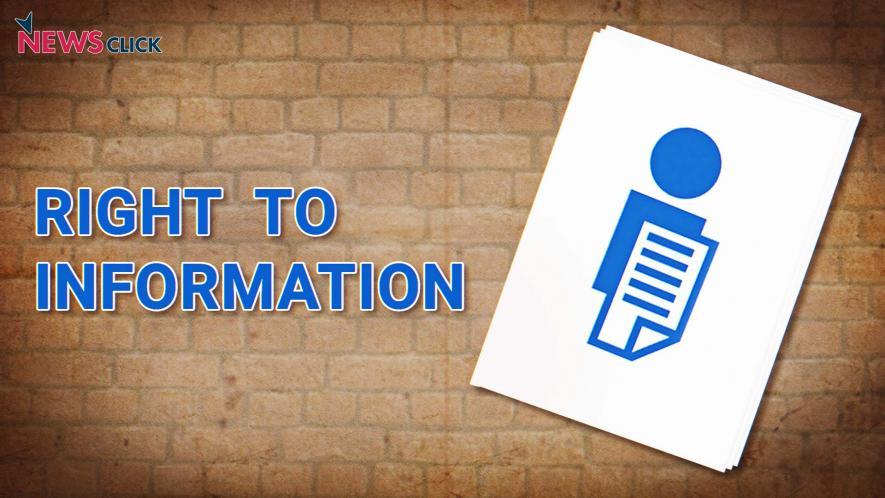Abrogation of Art 370 Halted Transparency Act in J&K

Despite the rhetorical emphasis on e-governance, public authorities have failed to make suo moto information disclosures on their official websites in Jammu and Kashmir and other parts of the country. In 2013, the Department of Personnel and Training (DoPT) directed all public authorities to ensure regular audits by a third party of the voluntary disclosures, which are mandatory under section 4 of the RTI Act 2005. Some public authorities, especially central government organisations, follow the law, but in most states and Union Territories, they have miserably failed to ensure transparency. Their official websites are not updated, and official Twitter handles are not maintained either.
The DoPT had directed, “Each ministry/public authority should have its proactive disclosure package audited by a third-party every year. The audit should cover compliance with the proactive disclosure guidelines as well as adequacy of the items included in the package. The audit should examine whether there are any other types of information which could be proactively disclosed. Such audit should be done annually and should be communicated to the Central Information Commission annually through publication on their own websites.”
In practice, however, most government offices seem reluctant to disclose information. So it has fallen on public-spirited citizens and activists to petition the high courts and even Supreme Court to ensure this legal provision gets implemented. Yet despite directions from the judiciary, government officials have not assured transparency by putting official records on their websites and other digital platforms.
Supreme Court Notice
The Supreme Court recently issued a notice to the government of India in response to a petition filed by a social activist KC Jain to effectively implement section 4 [section 4(2) in particular] of the RTI Act. A bench of Justices Sanjay Kishan Kaul and MM Sundresh sought a reply from the Center by issuing a notice to the government of India.
“There should be suo moto disclosure of all vital information. Section 4(2) embodies this mandate of suo moto proactive disclosures,” Jain’s plea states. Pertinently, several reports and orders of the Central Information Commission and various State Information Commissions (SICs) confirm the poor implementation of section 4. The petitioner also submitted that three other related petitions are pending before the court.
What is Suo Moto Disclosure?
According to section 4, every public authority shall maintain duly catalogued and indexed records to facilitate the right to information. This includes digitising all relevant documents and connecting them through a country-wide network to enable access. The section says public authorities will provide the public with information at regular intervals through the internet and other means of communication.
Notices from Central, State Info Commissioners
The Central Information Commission (CIC) and state commissions have issued several notices to the central and state governments asking them to digitise office records and share them online. Former Chief Information Commissioner Satyananda Mishra reminded the government of India to computerise its files in his official communication to the DoPT. He said, “The government promised it would computerise the files, but where is the action? If the files and file notings are computerised and duly catalogued, the number of RTI applications will actually come down. Only those files which contain sensitive subjects and are exempted under the RTI Act should not be put on the web.”
From 2011 to 2018, former State Chief Information Commissioners of the erstwhile Jammu and Kashmir State Information Commission, GR Sufi and Khurshid Ahmad Ganai, issued at least half-a-dozen circulars each to the state government asking for suo moto information disclosures. This was as per the mandate of section 4(1)(b) of the Jammu and Kashmir RTI Act, 2009. This law was repealed after Article 370 was abrogated. The disclosures were to be made within 120 days of enacting a law and at regular intervals after that. But even though 16 years have passed since the government passed the RTI Act across the country, most government websites still share misleading and obsolete information.
The central RTI Act, 2005, has been in force in Jammu and Kashmir since 31 October 2019, but the government has not made it operational here, especially not the voluntary disclosure clause. After Article 370 was repealed, the Jammu and Kashmir State Information Commission (SIC) was shut down, and the RTI Act 2005 replaced the Jammu and Kashmir RTI Act 2009. Ironically, the 2005 Act has no provision for a State Information Commission in a Union Territory. Now that Jammu and Kashmir stands reduced to a Union Territory, it has been clubbed with the Central Information Commission. Now, for more than a year, our second appeals were not even listed for a hearing. Under the 2009 RTI Act that applied to the state, the State Information Commission was legally bound to dispose of appeals within 60 to 120 days. This provision is not available in RTI Act 2005.
PIL in Jammu and Kashmir High Court
This writer sought judicial intervention and filed a Public Interest Litigation (PIL) before the Jammu and Kashmir High Court in May 2018. The Jammu and Kashmir government had failed to adhere to voluntary disclosure of information despite being reprimanded several times by the erstwhile State Information Commission. On 24 December 2018, the division bench of Justices AM Magrey and Sanjeev Kumar High Court directed the government to adhere to sections 4 and 23 of the 2009 RTI Act. Section 23 legally bound the authorities to mass awareness of the RTI Act. From 2009 to 2018, very few RTI awareness programmes were held in Jammu and Kashmir. The government even failed to train its designated Public Information Officers (PIOs). This author obtained information under the RTI Act which revealed that very few RTI awareness programmes were held in Jammu and Kashmir for government officials. The appearing Additional Advocate General had assured the court that Jammu and Kashmir would have no difficulty adhering to the said provision of RTI law.
In an earlier order dated 3 April 2018, the division bench of acting Chief Justice Ramalingam Sudhakar and Justice MK Hanjura had directed the General Administration Department of the Jammu and Kashmir government to ask all government offices to comply with section 4 of the now-repealed 2009 Act. Even after final orders were pronounced on 24 December 2018, proactive disclosures under section 4 did not begin.
After the state RTI law was repealed on 5 August 2019 and the national RTI Act, 2005, got extended to Jammu and Kashmir, many believed the Lieutenant-Governor’s administration would implement the transparency law more seriously. However, the situation has only become more frustrating. More than two years later, the government failed to even train its designated PIOs about the RTI Act, 2005. It was only after repeated pleas and social media complaints by activists that the government recently started training workshops for PIOs at the Jammu and Kashmir Institute of Management, Public Administration and Rural Development.
Concerning public awareness, not a single workshop, seminar or conference has been held in Jammu and Kashmir since the central RTI law got extended to the region. The government has failed to issue advertisements on the radio, TV or newspapers asking people to use the RTI Act. The district websites do not even provide updated Pradhan Mantri Awas Yojana or Pradhan Mantri Ujjwala Yojana lists as part of voluntary disclosures. When people seek this information under the RTI Act, PIOs mostly deny it to them.
Project Reports Unavailable
The Pradhan Mantri Gram Sadak Yojana (PMGSY) has no dedicated website in Jammu and Kashmir. Detailed project reports (DPRs) are unavailable in the public domain, not even on district authorities’ websites. While executing works, people are kept in total darkness by the PMGSY officials and contractors. For example, the residents of Bonen in Budgam district had to file an RTI application through a local social activist, Mushtaq Ahmad, who sought information from the Prime Minister’s Office (PMO) via an online RTI.
The application sought the DPR of a road constructed from Bonen to Kutbal under the PMGSY. The PMO forwarded this application to the ministry concerned, which forwarded it to the Jammu and Kashmir government. Finally, the application landed before the Executive Engineer, Project Implementing Unit, Budgam. The officer sat on the application for three months, and after activists complained over social media, he sent a bundle of unreadable blurred documents via email. Had the PMGSY adhered to section 4 of the central RTI Act, all the DPRs would have been on the internet, and Mushtaq Ahmad would not have been forced to file an RTI application, which did not provide the requisite information anyway.
Change in Intent or Policy?
It seems that the policy adopted by the DoPT in 2013 vis a vis the 2005 RTI Act, which works under the PMO, has changed. This change is evident from how despite emphasising third-party audits into proactive disclosures by public authorities, there is no such move on the ground. Had the government implemented the 2013 order, the authorities would have audited even block and tehsil offices by now. It seems the present dispensation does not prioritise policies and legislation enacted during the United Progressive Alliance government. That is why the Right to Education Act, Right to Fair Compensation Act, Forest Rights Act and other similar progressive laws are moving at a snail’s pace here in Jammu and Kashmir. Had third-party audits of websites and social media pages been mandatory in practice for all public authorities, they would have faced a rigorous transparency audit and strengthened governance. A fresh petition before the Supreme Court seeking suo moto information disclosures has generated new hopes.
The author is a Srinagar-based social activist, writer, independent researcher and an Acumen Fellow. The views are personal.
Get the latest reports & analysis with people's perspective on Protests, movements & deep analytical videos, discussions of the current affairs in your Telegram app. Subscribe to NewsClick's Telegram channel & get Real-Time updates on stories, as they get published on our website.
























